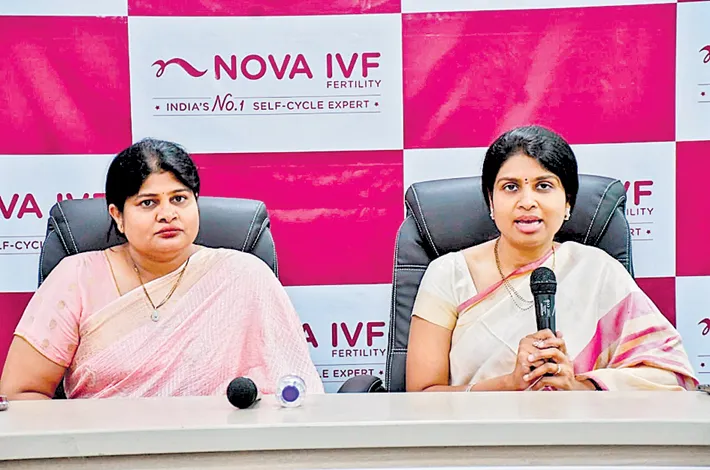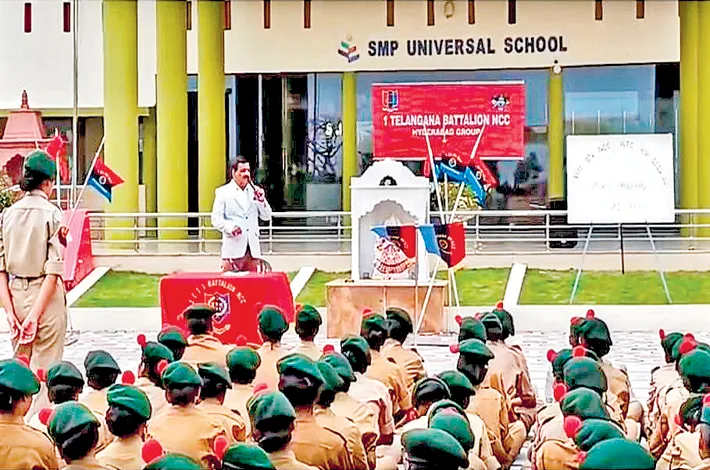India Poised to Shape Global Health Future: Burton
18-09-2025 12:00:00 AM

The COVID-19 pandemic exposed critical vulnerabilities across global health systems, demanding a re-evaluation of national and international health policies and system preparedness. As the world continues to reflect on its response and prepares for future pandemics, there is a pressing need to harness talent across the globe, particularly from nations like India, which possess considerable healthcare experience, a robust scientific community, and a growing influence in global affairs.
India’s untapped potential in Global Health Policy
India is home to one of the world’s largest healthcare systems, serving over 1.4 billion people through a range of public, private and philanthropic services spanning a complex social, political and physical geography. Its experience in managing a broad spectrum of health challenges, from communicable diseases like tuberculosis and malaria to non-communicable diseases such as diabetes and heart disease, is building a deep reservoir of medical, public health, and policy expertise. Insights, grounded in managing health at scale under resource constraints, can offer practical solutions for health systems in low-and middle-income countries and high-income nations alike.
A new era of global health leadership
The future of global health depends on inclusive leadership that draws from a wide range of experiences. Public health experts, epidemiologists, policymakers, technologists, and medical researchers can bring a unique blend of technical expertise and cultural competence. Their participation is vital in crafting policies that are equitable, context-aware, and adaptive to varied geopolitical and socioeconomic landscapes. Moreover, India’s growing diplomatic presence, evident in forums like the G20, positions it as a bridge between new and emerging power blocs. By contributing through leadership in global health, experts from India can authentically advocate for policies that ensure fairer access to medicines, strengthen health systems in vulnerable nations, and foster international cooperation in disease surveillance and research.
Strengthening system preparedness through collaboration
There were many remarkable aspects in India’s response to the COVID-19 pandemic, including the success of its leadership role in facilitating global access to vaccines. What was also clear nationally was the commitment in early 2020 to cross-government working to develop and implement mitigations to control the impact of the pandemic. Both of these actions highlight two important truths. Extreme challenges to the sustainability of health systems and health require global action. Secondly, solutions which sustain health and healthcare need to be interprofessional, interdisciplinary and intergovernmental.
This is at the core of our new Master of Science degree in Global Public Health at the University of East Anglia. This provides students both with a solid foundation in international and public health theory and practice and an opportunity to tap into our global expertise in areas such as climate change and environmental sustainability. We need our public health leaders to have the confidence and skills to work across traditional boundaries and see ‘wicked’ problems in a new light.
Future pandemics may emerge from zoonotic spillovers and antimicrobial resistance. However, stressors equivalent to the COVID-19 pandemic may emerge from other crises such as climate change, digital disruption, economic pressures, or international conflict. All may reduce the ability of health systems to function properly, with impacts on public health and well-being. Tackling these challenges required cross-border collaboration, robust data sharing, and rapid policy coordination, all areas where India can significantly contribute. Investment is required to facilitate collaboration between genomic epidemiologists and data scientists in India to help develop the digital health infrastructure for real-time disease tracking, resource allocation, and targeted public health messaging.
Investing in talent and representation
To realise this potential, there must be deliberate efforts in India to nurture talent in global health policy. Universities, research institutions, and public health schools should encourage global fellowship, policy research, and multilateral engagements. Likewise, international organisations must proactively recruit and include professionals from India into leadership and advisory roles. India’s own government and private sector invest in building policy think tanks, promoting interdisciplinary education, and incentivising public health careers that intersect with global diplomacy. In these ways, system leaders and professionals will be able to play a larger role in shaping global health policy and better prepare the world for new pandemics and other significant stresses which impact the sustainability of global healthcare and health.
The threats to the sustainability of global health posed by future pandemics demand a more diverse and representative global health leadership. With its rich healthcare experience, scientific expertise, and strategic global position. India is uniquely positioned to contribute meaningfully to global health policy. Harnessing talent is not just an opportunity; it is an urgent necessity to build a safer, more resilient world. The time to act is now, before the next crisis emerges.
The author is the Dean of Health Sciences at the University of East Anglia, UK








